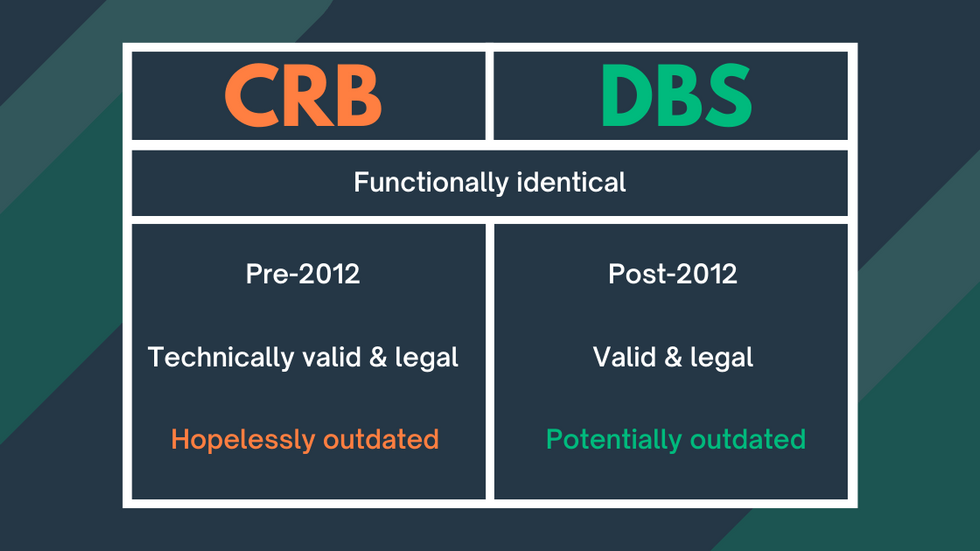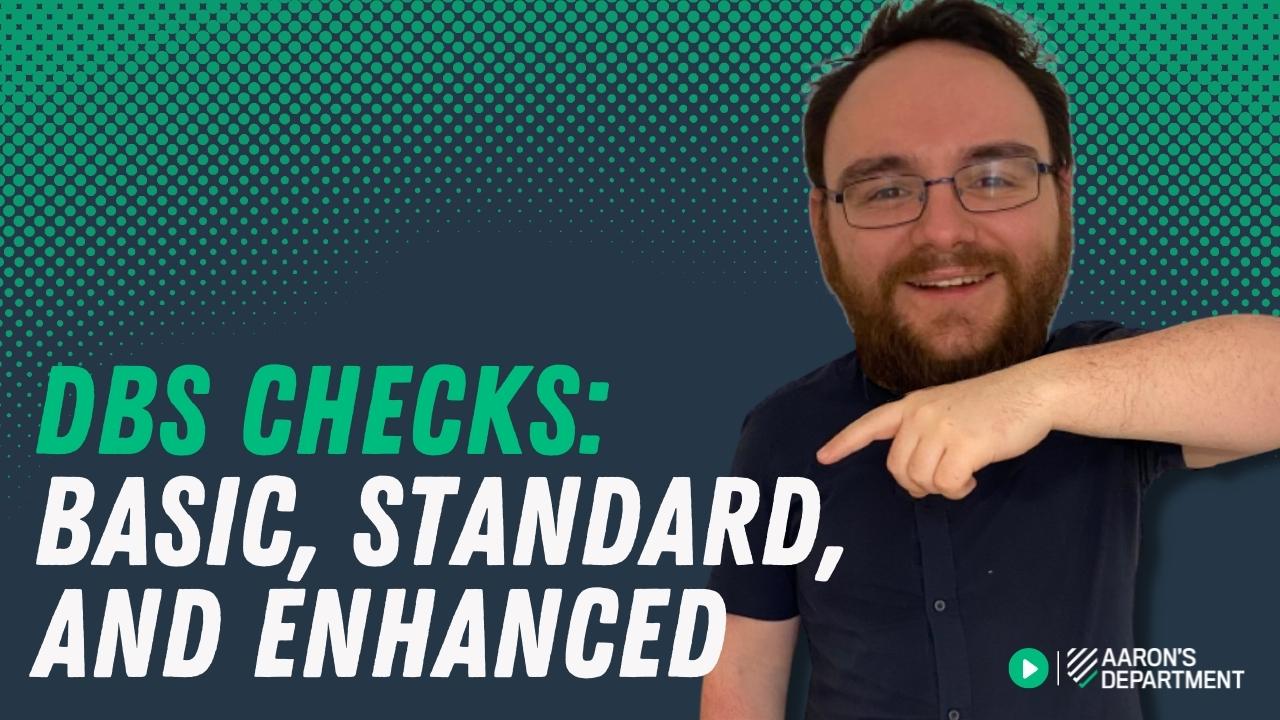When doing a DBS check, it is important that you can understand the differences between the three types of DBS checks, especially as an employer. So, we’ve created a DBS check guide to the three types of DBS check: Basic, Standard and Enhanced.
Applying for the wrong type of check for your employees/volunteers is a waste of time and money when the application inevitably gets rejected, and can even represent a breach of the law.
Worth paying attention to, then!
DBS Check Guide – What Does DBS Stand For?
So, what does DBS stand for? DBS stands for the ‘Disclosure and Barring Service’. The DBS is a non-departmental public body of the Home Office. They aim to help employers make safer recruitment decisions, in return protecting themselves and others.
Prior to 2012, the DBS was known as the Criminal Record Bureau (CRB). This chart shows the main differences between CRB and DBS checks, but for more detail it’s best to visit our dedicated page, CRB Check.


DBS Check Guide – What Is a DBS Check?
A DBS check, depending on the level selected, is an official document that states an individual’s criminal convictions. They are used by employers to ensure that when hiring someone, a well-informed and suitable decision for the role in question can be made. The higher the level of DBS check requested, the more information is included on the certificate.
As we will discuss later, DBS checks are also essential in keeping children and Vulnerable Adults safe.
DBS Check Guide – What Is A Basic DBS Check?
Basic DBS checks are a type of criminal record check that disclose:
– Any unspent convictions and cautions that the applicant has.
Basic DBS checks can be requested by anyone, for any reason, as long as the applicant consents. They are often used as a reference to help aid the recruitment process. We process a lot of Basic DBS applications for airport staff, contractors, temporary agency staff, and drivers – to list a few.
DBS Check Guide – What Is A Standard DBS Check?
Standard DBS checks can only be applied for by employers, on behalf of a current or potential member of staff/volunteer. If a role is eligible for a Standard DBS check, then it also means that a Standard DBS check is legally required for all staff/volunteers working in that role. They disclose:
– Spent and unspent convictions, cautions, and reprimands.
Standard DBS checks are used in positions of trust, but ones that don’t involve working directly with children or Vulnerable Adults*. These positions include lawyers, security guards, and accountants, and cleaners in care homes.
*Vulnerable Adults is the term the DBS uses to refer to over-18s who are in receipt of some form of health or social care. This is a very simplified definition, however. For a full explanation, have a read of our page, FAQ: What is a Vulnerable Adult?
DBS Check Guide – What Is A Enhanced DBS Check?
Enhanced DBS checks can only be applied for by employers, on behalf of a current or potential member of staff/volunteer. If a role is eligible for an Enhanced DBS check, then it also means that an Enhanced DBS check is legally required for all staff/volunteers working in that role. This level of check discloses:
– Spent and Unspent Convictions, cautions, and reprimands.
– Any relevant information held by the local police forces (“local” to the applicant’s 5-year address history).
– If eligible, this level of DBS also includes a check of the Adults’ Barred List and/or the Children’s Barred List.
Enhanced DBS checks are used for roles that involve contact with children (under-18s) and/or Vulnerable Adults. School Teacher, Taxi Driver, Carer, Dentist, and Childminder are all roles which require an Enhanced DBS check. Many sectors/regulatory bodies also require that staff Enhanced DBS checks are also regularly renewed – read our guide to DBS renewal for more info.


DBS Check Guide:
How can employers get DBS checks?
Employers must use the services of a 3rd party ‘Umbrella Body’ to make DBS applications for staff. If you’re interested, that’s exactly what we do here at Aaron’s Department!
Our fast-tracked, easy-to-use, affordable system is the choice of thousands of organisations across England, Wales, Man, and the Channel Islands (Scotland and Northern Ireland use other checks). If you’re looking to save on your staff DBS checks, use the buttons to sign up (for free) and get started in minutes.
Any questions? Our customer service is a real point of pride for us (just check our testimonials!). Feel free to get in touch at contact@aaronsdepartment.com, or call 0113 877 0171 between 8:00am and 5:00pm on a weekday. We look forward to hearing from you!
Forward this page!


Further Reading
If you’ve found our DBS check guide useful, we’ve linked some other handy resources below:

